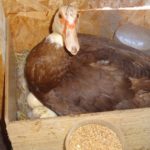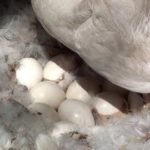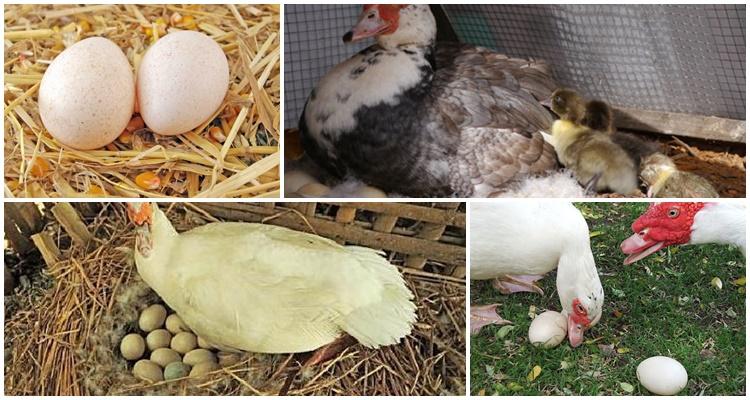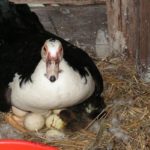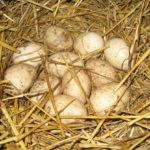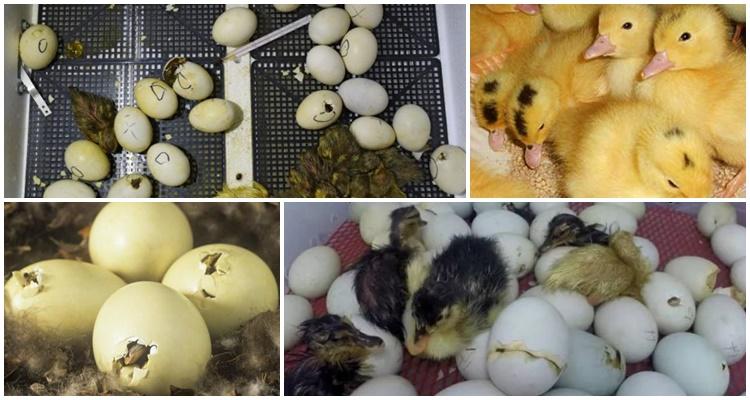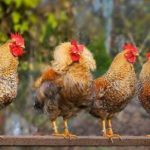Those farmers and homestead owners who have turkey ducks are interested in when they start laying eggs. These domestic birds are often called mute ducks, or dumb ducks, because, instead of the usual sounds, they make a barely audible hiss. They are considered to be meat breeds, but the issue of egg production is important for breeding and increasing the number of livestock.
When do Indian ducks start laying eggs?
Indian ducks are large, calm birds that gain weight well.Their meat is low in fat compared to other breeds of domestic ducks, so they are often bred for meat.
Since birds grow quickly, it makes no sense to keep them for meat for longer than 3-6 months. Therefore, it is important to establish reproduction of the livestock, and for this it is necessary to know at what age mute mules begin laying.
It is believed that puberty in Indian ducks occurs between six and seven months, but it is impossible to indicate the exact period, because it is influenced by dozens of factors. If birds are provided with optimal living conditions, adequate high-calorie feeding, and kept warm, they lay eggs 2-3 weeks earlier than the standard period.
In the case when Indian ducks live in a cold room, part of their energy is spent on heating the body; the first laying occurs later.
The life expectancy of an Indian duck reaches 20 years. Poultry is not kept on farms for such a long time, however, a musk duck with a high egg production and a developed hen instinct can hatch more than a dozen ducklings in its lifetime.
Mute birds lay eggs every six months - in autumn and spring. The duration of egg laying reaches 60 days, but this period can be extended with artificial additional lighting and increased feeding. Laying begins at dawn and is usually completed by lunchtime.
The presence of a drake stimulates egg laying. For 3-4 female Indian ducks, they keep 1 male. Its presence slightly delays the start of laying, but the eggs are fertilized, which is important for the reproduction of poultry.
Productivity indicators
The egg production rates of musk ducks are never stable, as they are influenced by the following factors:
- Age and health of the bird.
- Living conditions.
- Quality of feeding.
- Lighting level in the poultry house.
- Season.
At six months, a duck lays no more than 8 eggs, and at 8 months their number doubles. At 9 months Indian ducks lay up to 22 eggs, at 10 months there are already 25 of them. After this, a decrease in indicators begins, that is, after a month the number of eggs decreases to 22, and by the year it returns to the indicator of eight months - 16 pieces.
When productivity indicators decline, such eggs are not used for breeding, and the turkey ducks themselves are often sent for meat. Since duck eggs are used for food in small quantities, it is unprofitable to keep hens for longer than 10-11 months. On average, a musky duck is capable of laying up to 100 eggs in 365 days; record holders increase this figure to 120 and even 140. The weight of the egg reaches 60-70 grams, the incubation period lasts from 34 to 37 days.
What can affect the performance?
If an Indian duck has reached 12 months and still has not started laying, this may indicate hormonal problems in her body. Such birds are discarded and sent for meat. Also, the level of hatching of ducklings is influenced by the personal qualities of the hen. It is necessary to choose the right duck. It should be large, with a broad chest and minimal growths on the head around the beak.
Indian ducks are excellent mothers, so the brood will be safe and sound with them. It is not necessary that the laying hen also be a hen, because “other people’s” eggs can be placed under a good mother.
But the productivity of a laying hen can suffer from many external and internal negative aspects:
- Keep in a cold, damp room.
- Insufficient caloric content of food.
- Low level of general lighting.
- Lack of exercise.
- Crowded poultry housing.
- Presence of diseases.
Indo-ducks must receive fresh green food, because monotonous feeding has a negative impact on their health and productivity.
What problems might there be?
Indian ducks rarely get sick, have a good appetite, a friendly, calm character, and are leisurely. When breeding at home, there are rarely problems with them. In order for birds to lay eggs properly, not abandon their clutches, and hatch dozens of ducklings, owners need to know what requirements they have for their living conditions.
The Muscovy duck is a good laying hen and brood hen, but in order to obtain a large number of eggs and hatch ducklings, the following conditions must be provided to them:
- Insulated nest (you can take a regular box).
- A quiet place to place the nest, isolated from neighbors.
- Warm nesting area.
- Ensuring cleanliness not only in the nest, but also in the house. Ducks do not tolerate damp and dirty bedding, which must be frequently replaced with new ones.
- Free access to food and clean water.
- Bathing container. Ducks love water - wet feathers are necessary to provide conditions for hatching eggs.
- Indo-ducks need to be released to pasture. Movement is beneficial, and in the grass, birds peck insects, snails, pebbles or gravel, and replenish their supply of vitamins with fresh grass. There is no need to graze like geese - mute birds do it on their own.
A duck may abandon her clutch or refuse to hatch her offspring if the nest is infested with parasites, the house is attacked by rats or other predators, or if the brooding area is too brightly lit. If a bird is greatly frightened, it can abandon not only eggs, but also ducklings.
To ensure continuous laying, it is necessary to leave one egg in the nest or use a blende - a ceramic or plaster “blank” of the appropriate shape. By providing indian ducks with adequate conditions, you can get eggs, dietary meat, hundreds of ducklings a year and material benefits.

